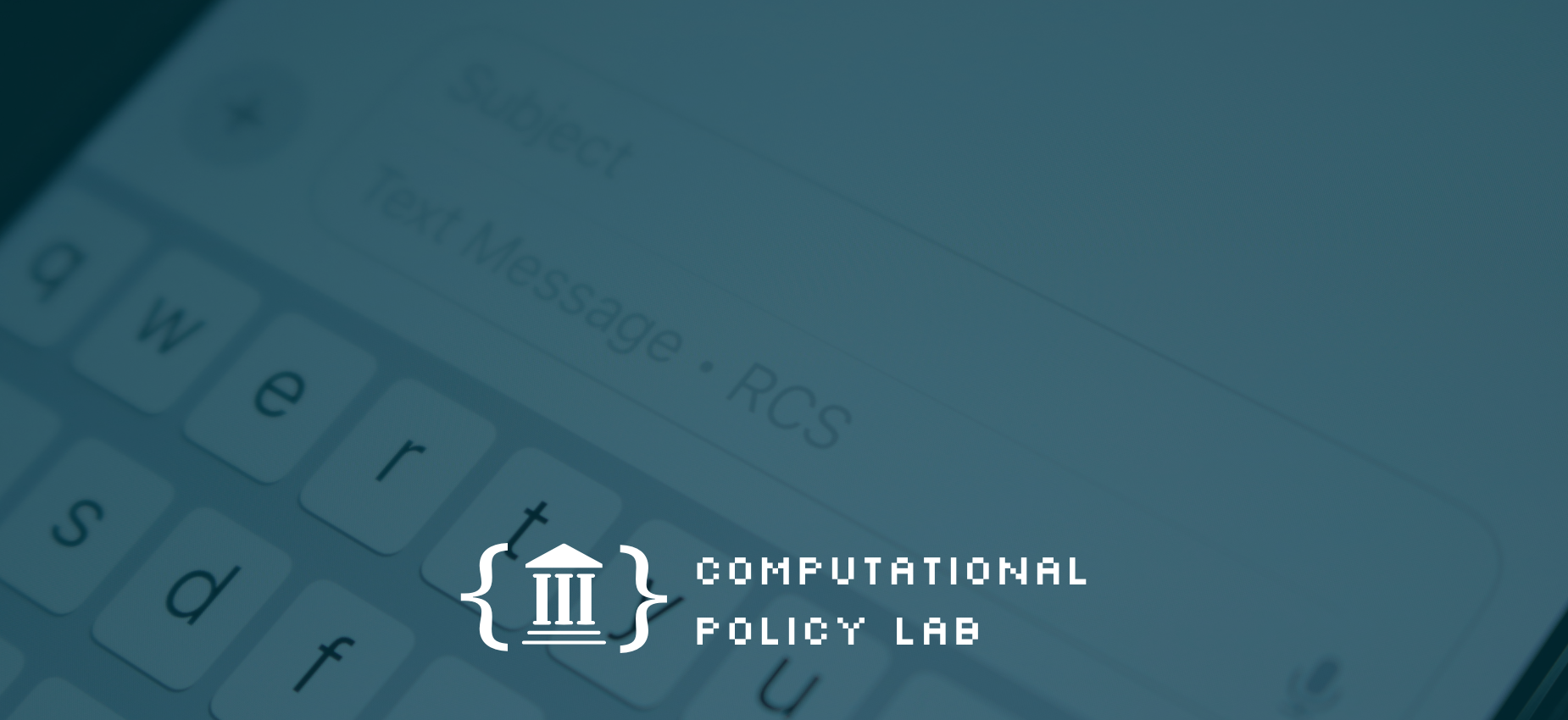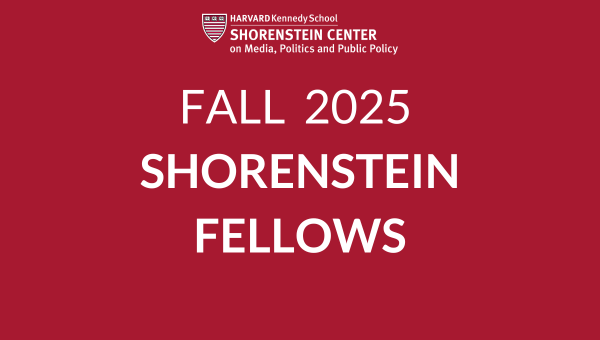
Center News
Ken Burns to give Theodore H. White Lecture on Press and Politics
Media Mention
Emerging Technologies, Information Distribution, Policy & Impact

The heads of the “Big Four” tech companies – Google, Apple, Amazon, and Facebook – are testifying today in front of the House Judiciary Committee as part of the ongoing investigation into potential antitrust violations in the tech industry.
The Shorenstein Center’s researchers have long been thinking and writing about the influence of Big Tech on society, and what might be done about it. Below is a quick roundup of recent publications and interviews from some of the Center’s leading thinkers on the subject.
Dr. Joan Donovan, Research Director at the Shorenstein Center and Director of the Technology and Social Change Project, says:
If the congressional hearings explore conspiracy theories and hate speech, they will be an important marker—not least because medical misinformation and political disinformation are becoming enmeshed in new and dangerous ways, at exactly the same time that those of us in soft quarantines have come to rely on social media more than ever. Forget hate speech: scams, hoaxes, and health misinformation are propagating at alarming rates across our media ecosystem…. If Congress chooses to look in the right places, it may discover the true cost of social media— and the fact that we cannot build a healthy democracy on top of an ailing communication system.
Read more in Dr. Donovan’s most recent column in the MIT Tech Review: Why Congress Should Look at Facebook and Twitter.
Dipayan Ghosh, Senior Fellow and Co-Director of the Digital Platforms and Democracy Project, recently published a book that envisions a path forward for platform regulation. He says:
Wednesday’s antitrust hearing in the House Judiciary Committee stands to be vital. It is a unique opportunity: Never before have we had such a vaunted occasion featuring the tech industry’s barons — the CEOs of Facebook, Google, Apple and Amazon — all testifying together. I anticipate that Congress will attempt to use this hearing to build the case that these companies are economically exploitative and have monopolized the digital media ecosystem — and that they have caused harm to consumers and to market innovation.
Read more of Dipayan Ghosh’s writing on the hearings and related issues of platform regulation:
India’s TikTok Ban Dispels the Myth of the ‘China Bogeyman’ – Wired
Don’t Give Up on Your Digital Privacy Yet – Slate
The Digital Platforms and Democracy Project team has also published a number of white papers digging into the complexity of regulating Big Tech, and offering some potential solutions:
The Commercialization of Decision-Making: Towards a Regulatory Framework to Address Machine Bias over the Internet
By Dipayan Ghosh (originally published by the Hoover Institution at Stanford University)
Key Elements and Functions of a New Digital Regulatory Agency
By Gene Kimmelman
Countering Underinvestment in Prevention by Platform Companies
By Philip Verveer
Countering Negative Externalities in Digital Platforms
By Philip Verveer
The Right Way to Regulate Digital Platforms
By Gene Kimmelman
Platform Accountability: An Interim Measure
By Philip Verveer
Platform Accountability and Contemporary Competition Law: Practical Considerations
By Philip Verveer
The Root of the Matter: Data and Duty
By Tom Wheeler
Time to Fix It: Developing Rules for Internet Capitalism
By Tom Wheeler

Center News

Center News

Center News